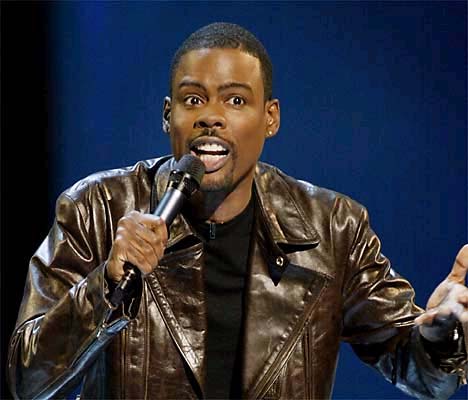Wednesday, April 27, 2011
Chris Rock will save the world
Rock was asked for his opinion about the Tea Partiers - the same group of people, incidentally, who loudly call for President Obama's birth certificate - and the comedian, who proved he just may be the smartest man on the planet (which still makes him dumber than 50% of the population), delivered this wonderful answer:
Saturday, April 23, 2011
A fine conspiracy: Make Hawaii a state so Obama can be elected American president... The Birthers finally unravel this mess we're in in 2011

Conspiracy theories interest me primarily because they reveal so much about human nature. They show our need to know what can’t be known, even if we have to invent what can’t be known. As a species we are so evolved, we have time to worry about parallel universes, heaven and hell, and, of course, President Barack Obama’s birthplace.
Meanwhile, Rome burns.
The Birther phenomenon is really no surprise. Obama is black.
A chunk of America woke up the morning after the election, opened the morning newspaper and said, “What the hell?” Everything they knew about the world had changed overnight. They wanted a Mulligan. They wanted to rewind the tape. They wanted it to be 1958 again.
Of course, there are reasons for white Americans to wish for peaceful, profitable, likeable 1958 . But they were stuck with 2008, a Black president, a sour and uncertain economy, two wars, three-dollar gas, bad cholesterol, and diminishing returns on everything. Yes, and the designated hitter.
I really prefer the grand conspiracies. The Tri-Lateral Commissions. The McCarthy lists. The Free Masons. The Vietnam War. By comparison, the Birther phenomenon seems petty, more a conspiracy for weenies. Think of it this way. If the McCarthy’s had been right, what would the result have been? Nothing less than massive infiltration of government and the arts by the nation’s major enemy, an enemy with nuclear weapons and a massive secret police. Now, if the Birthers are right, what is the outcome?
Yep. A black man in the White House.
In that context, the Birther phenomenon is a little more clear, isn’t it.
Or, in a more contemporary context, compare the Birther conspiracy to the conspiracy embraced by those who think the attack on the World Trade Center was an inside job, the Truthers. An Ohio University poll suggests one in three Americans believe the United States government was somehow complicit in the 911 attacks.
Truthers: Two-thousand seven-hundred fifty two dead.
Birthers: Black man in the White House.
The New York Times – I know, they’re part of the conspiracy, what do you expect? – did a fine piece on the psychological nature of the Birther phenomenon last week.
In their own poll, the Times found more Republicans believe Obama was not born in the United States than believe he was born in the United States. In fact, only one in three Republicans believe Obama was born in the United States. Give that notion a second to sink in. One of the Times contributors, James T. LaPlant, political scientist and associate dean in the College of Arts and Sciences at Valdosta State, may have actually hit the nail on its ugly little head.
“I would also conclude that basic ignorance is at play. A poll of North Carolina voters in 2009 by Public Policy Polling found that 26 percent did not believe Obama was born in the U.S., and 20 percent were unsure. A question later in the poll asked if Hawaii was part of the United States.: 5 percent of respondents said no and 3 percent were unsure.”
Ah, the problem is simple. Hawaii isn’t one of the 50 states. Who knew?
But it is a state, you say. Ha. Fool. Think about it a minute. Why do you think THEY made Hawaii a state? Did we really need 50 states? No, we were fine with 48 or 49... whatever. Just use your imagination. The forces who wanted to put a Muslim in the White House to bring the United States of America to her knees in 2011, were simply thinking ahead. They’d have to build a plausible case for American sheep-thinkers to swallow to legitimize his election 49 years later. Think about it. SOMEBODY made Hawaii a state just three years before Obama was born. Do you think that's a coincidence?
Oh, and by the way, what kind of name is LaPlant, anyway? French? Spanish? Mexican?
I interviewed a guy once who was a conspiracy theorist way to the right of anybody on the political spectrum. He seemed like a nice man, an industrous small-business man in a struggling neighborhood, cordial, friendly, even a bit worried about me.
“John,” he said at the end of the interview, “if you really get into this stuff, be careful. It will take your mind.”
I don’t think he meant it quite like you’re reading it. He meant, I’m sure, it will come to dominate your view of the world and, ultimately, your life. But looking across the table at the fire in his eyes and the way his fingers fluttered over the pages of the pamphlets in front of him, I was struck more by his unintended meaning.
-- Lofflin
President Obama's certificate of live birth courtesy New York Times.
Monday, April 4, 2011
Smart phones for journalists: Sketchy notes from the MCMA awards conference... smart phones as brain ad-ons, reporting tools, awards ceremonies

